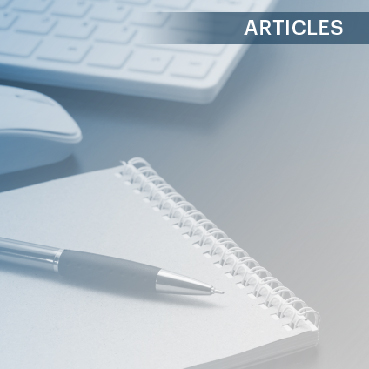Alex Dobson of Arcesium considers the firm’s approach to being an outsourced service provider
HFM: How does Arcesium approach outsourcing?
Alex Dobson (AD): Outsourcing can roughly be divided into two categories. The first is in pooling resources to operate existing systems and technology within an organisation. This is what I’d refer to as more of a pure, traditional outsourcing role where you have systems, technology, and people and are really just looking to augment your staff but not redesign the process or systems. Arcesium does not typically operate in this space.
From our perspective, there’s a second camp which I’ll say is technology-enabled outsourcing or services, and this is where we choose to focus. In this way, we provide clients with our proprietary, robust technology platform and our financial operations services team, who are practitioners and experts in that specific line of business. We can still ensure scale and staff augmentation, deploying additional resources as an organisation grows, whether that relates to trading volumes spikes, new counterparty relationships, strategic changes within the organisation, or launching new funds. We provide the benefits of scaling and the benefits of a consulting engagement to drive efficiencies, instead of just doing things in the same way as they have always been done.
HFM: What factors have influenced your approach here?
AD: I think that there is a place for each type of outsourcing model in the world, and both certainly have areas where they make sense, but we have chosen to focus on the technology-enabled service model because we have a great technology platform that we think enables our clients to operate more efficiently, whether they are operating it themselves or we are doing so on their behalf. Further, particularly in the industry we focus on, we realise that no two clients are alike. This is why our consultative approach helps us. Rather than pigeonholing a client into a rigid delivery model, we can take a closer look and design custom solutions that really work for our clients. Automating workflows, handling different geographies and time zones, shows us that no two clients are the same, and so we can provide more value by responding to our clients’ needs on an individual basis.
HFM: How else are you differentiating?
AD: We have a staff that was originally spun out from a hedge fund, so we operate with many years of experience working in a buy-side shop. Therefore, our staff think like hedge fund employees; we really have an ingrained understanding of our clients’ business. Next, we really provide a different level of transparency into the technology and outsourced processes versus some of our competitors. This means that clients aren’t giving us something at 6pm one night with an arrival time of 8am of the deliverable the next day. Instead, our clients have full visibility into everything we are doing at each stage of the process. There’s no time where clients can’t get a live shot of where we are in the process.
HFM: Why is transparency so important to Arcesium?
AD: From day one we always wanted to be true consultative partners with our clients and more than mere outsourced providers. It has always been part of our DNA. With this transparency, we also provide our clients with a lot of oversight on the processes, SLA performance, analytics and metrics and review these together to drive continuous improvements.
HFM: What are some of the common challenges you come across with your clients around outsourcing?
AD: First and foremost, there is a hurdle for clients to surmount in giving up direct access and control over people and processes. We always try to work in the best interests of our clients as if we were working for them, but, realistically, we are not their direct employee. We work to address this through a dedicated account management function. This includes having dedicated relationship managers, on both the services and technology side, who really work to ensure that the decisions we’re making align with our clients’ goals and strategic initiatives.
Next, any time you have data going back and forth to outsourced providers, information security in this industry is always going to be of the utmost importance. We have dedicated client environments, dedicated security policies and other leading-edge controls which make clients comfortable that their data is protected and will not be seen or used by other clients also choosing to engage with us.
The third point surrounds what the right processes to outsource are and where the right place to draw that line is. We think there are some common processes – whether that be collateral management, reconciliations, data management – that make a lot of sense for our people to handle and scale very well with an outsourced provider. Conversely, certain value-add activities work better when they stay in-house. However, the line here often moves; clients begin with a smaller engagement and gradually move towards outsourcing other functions. We work to design things in this manner; not everything needs to happen on day one.
Clients often come to us with a range of processes they want to have outsourced, and once trust develops with us, they’ll often choose to expand on the outsourcing relationship with us as time goes on. Most relationships begin larger than one task, but whatever the case, the relationship very often evolves over time.
HFM: Beyond outsourcing not being the best approach, are there other reasons why you wouldn’t take a client on?
AD: The one place where outsourcing becomes somewhat difficult is where there is a qualitative or discretionary decision to be made. At least a high percentage of the outsourced responsibilities should be process-oriented and follow a decision tree. When there are discretionary decisions, they remain best in-house.
HFM: What do you expect the outsourcing landscape to look like in the next 3-5 years?
AD: A further reason we choose to focus on the technology-driven outsourced model is because firms are going to continue looking to improve their processes, and over time the consultative approach is going to prove the differentiating factor. People are going to be looking for providers who not only add bodies, but also help to significantly improve their internal functions and processes while reducing their technological footprint.
Arcesium’s Alex Dobson was interviewed by HFM.Global for an article in their HFM Technology Outsourcing Report. The 2019 Outsourcing Report was released in November 2019.





 Back to Insights
Back to Insights Back to Insights
Back to Insights